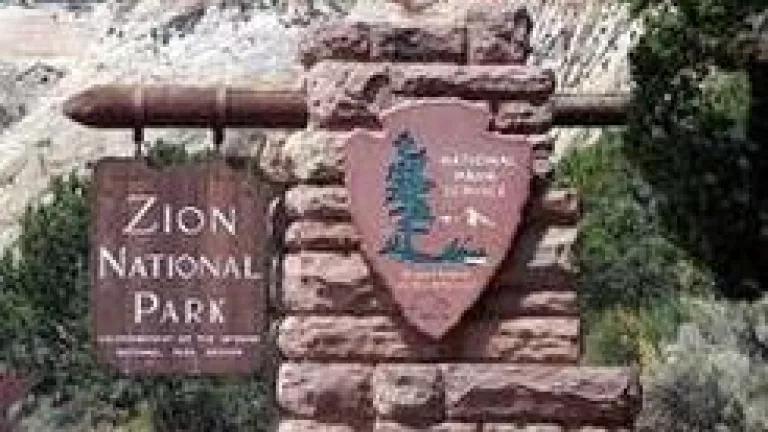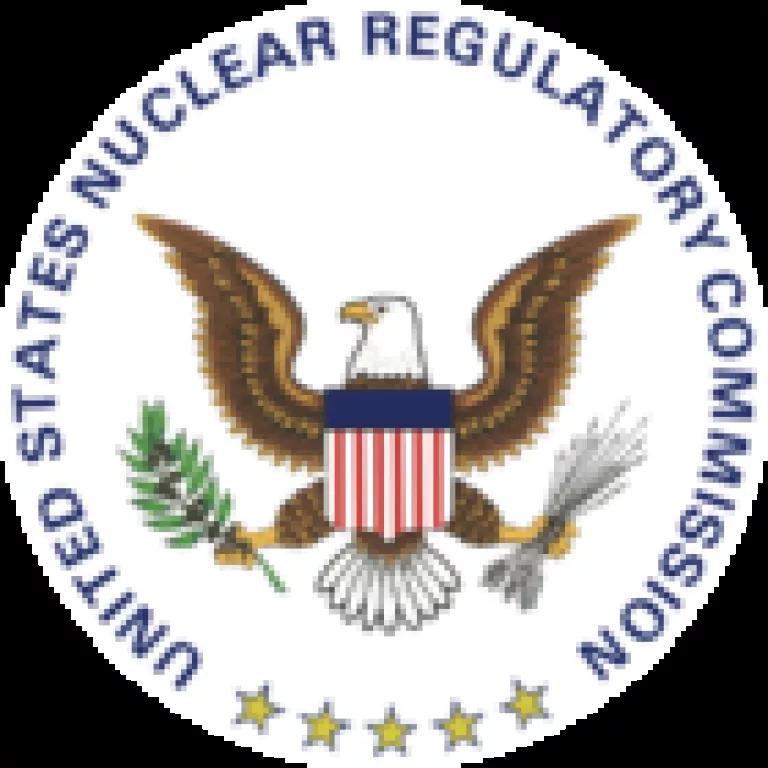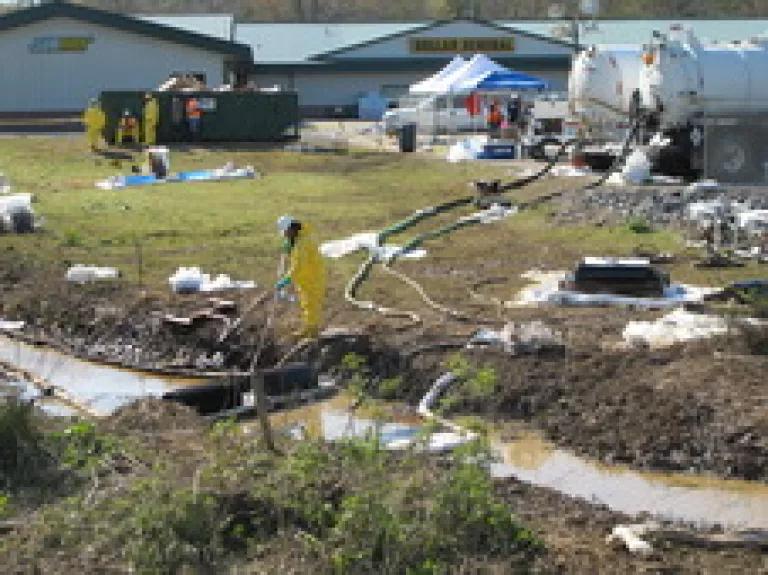Springdale, Utah, a "ghost town," Mayflower spill response slowed and massive furloughs for oversight of nuclear plants in Day 11 of the GOP's government shutdown

“I'd like to thank you all for nothing
I'd like to thank you all for nothing at all
I'd like to thank you all for nothing
Nothing, nothing, nothing, nothing, nothing at all
Nothing, nothing, nothing, nothing at all.” – “Misunderstood” by Wilco
As the Tea Party-led government shutdown slogs on, Wilco’s repetitive refrain rings truer every day. You could easily find an example of the shutdown’s harmful impact to our health, safety and environment to match each “nothing” above and, discouragingly, thousands more.
Today, in “Reason Takes a Holiday,” on Day 11 of the GOP shutdown, I’m highlighting a New Hampshire small business losing hundreds of dollars a day at a national park gateway community in Utah. Also, that tar sands oil spill cleanup efforts are slowing in an Arkansas neighborhood. And why we should be alarmed that the Nuclear Regulatory Commission, guardians of America’s nuclear power plants, abruptly sent home more than 90 percent of its staff.
It’s time Republicans who marched us into this mess abandon their ideological agenda. They need to do their job and pass a clean bill that funds all of our government, because our communities and families are more at risk every day, thanks to them.
Republican Alchemy: Spinning “New Hampshire Gold” into Springdale (Utah) Straw
The other day, Sen. Jeanne Shaheen took to the Senate floor to decry the impact of the GOP shutdown on a venerable business in her state. The company, New Hampshire Gold, produces maple syrup, sugar, cream and candy on a family farm that has operated since the 1700s. The products sell in gift shops as far away as Zion National Park, 2,500 miles away. But the shutdown drained funding from the nation’s 401 parks, monuments and sites, which were forced to close. At Zion, New Hampshire Gold’s “sales have dried up,” the senator said.
It’s worse than that. The company also runs another business, Simply Birkenstocks, selling Birkenstock shoes and outdoor apparel, which has a storefront shop in Zion’s gateway community, Springdale. Across our country similar national park gateway towns have been slammed by the shutdown. Zion, a 229-square-mile park in southern Utah, usually draws 3 million visitors a year to its dramatic canyon cut through red and tan sandstone.
“This is our prime season right now, September and October, and the shutdown has had a huge impact,” said Charlie Moulton, an owner of the two businesses. “Springdale is a ghost town.” Moulton added: “Folks have traveled from around the world, planned once-in-a-lifetime trips, and Zion is closed. It’s an embarrassment, it’s frustrating, and it’s heartbreaking.”
The trouble in Springdale illustrates one economic toll of the shutdown. Visitors typically spend $13 billion a year within 60 miles of the national parks, Sen. Shaheen observed. While the Obama Administration has just said states can spend their own money to reopen national parks, it’s unclear whether the Springdales will be able to spring back.
Nuclear safety personnel furloughed. What could go wrong?

The Nuclear Regulatory Commission, the nation’s nuclear safety watchdog, had been operating on leftover funds until Thursday. Then the money ran out and all but about 300 of the agency’s 3,900 workers were told to stay home. No more emergency preparedness exercises and no more routine inspections of nuclear materials and waste licensees, among many functions frozen. Also cancelled were five public meetings scheduled for October around the country on the issue of environmental impacts of storing dangerous spent nuclear fuel beyond the licensed life for operation of a nuclear power plant.
Among the ongoing projects put on hold by the shutdown: the NRC’s oversight of safety upgrades to nuclear power plants that were ordered after the 2011 nuclear disaster in Fukushima, Japan. That accident, the worst since Chernobyl, involved meltdowns and radioactive releases from multiple reactors that are similar in design to many U.S. reactors.
NRC Chairman Allison Macfarlane emphasized, however, that “all of our resident inspectors will remain on the job” at the nation’s 104 nuclear reactors. And if something goes wrong? Not to worry, she said, “We can—and will without hesitation—bring employees out of furlough to respond to an emergency.”
Two other federal agencies, the Centers for Disease Control and Prevention, and the Agriculture Department, have already had to recall furloughed workers because of unexpected emergencies. But neither of them had furlough cutbacks as severe as the NRC’s - nor the task of preventing a nuclear melt-down.
Shutdown hampers investigation into Mayflower, Arkansas tar sands oil spill

Six months ago, an ExxonMobil pipeline break poured thousands of gallons of toxic tar sands oil into the streets of a quintessential American suburb in Mayflower, Arkansas. The spill forced people out of their homes and cleanup work is continuing today. Now there’s growing concern that the government shutdown is affecting those efforts.
Arkansas Attorney General Dustin McDaniel, a Democrat, recently wrote to his congressman, Republican Rep. Tim Griffin, urging him to get the government reopened. Furloughs have cut into federally financed state work as well as federal oversight. McDaniel, whose office is in litigation against Exxon Mobil, tallied the impact. Nineteen staff at the state Hazardous Waste Division has been furloughed, including two who work onsite at the Mayflower spill. Five of eight attorneys at the Arkansas Department of Environmental Quality are furloughed. Environmental lab testing has been disrupted and the federal pipeline safety agency has suffered a large number of furloughs. And two-thirds of the employees in the U.S. Department of Justice’s Civil Division—the state’s litigation partners—were furloughed, McDaniel wrote.
This shutdown spillover comes just as Arkansas health and environmental officials released a new report. It shows levels of Polycyclic Hydrocarbons and metals that “pose ecological concerns” for a cove of Lake Conway, near the main blowout from the Mayflower spill.
See my earlier blogs since the government shutdown began: http://switchboard.nrdc.org/blogs/sslesinger/
Photo credits: Mayflower tar sands spill courtesy Rocky Kistner, NRDC; others courtesy wikimedia commons or wikipedia.
